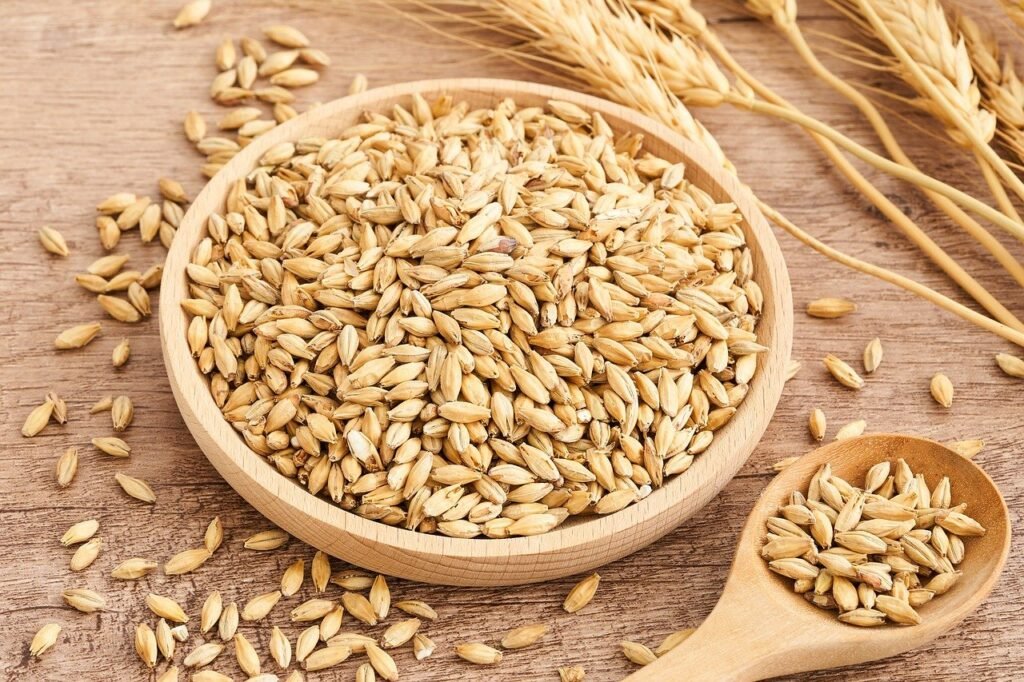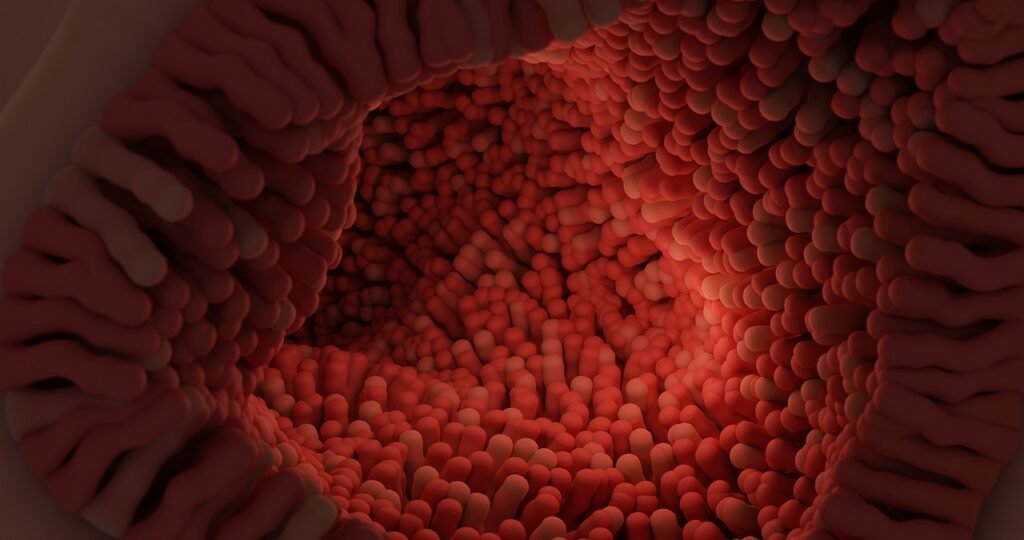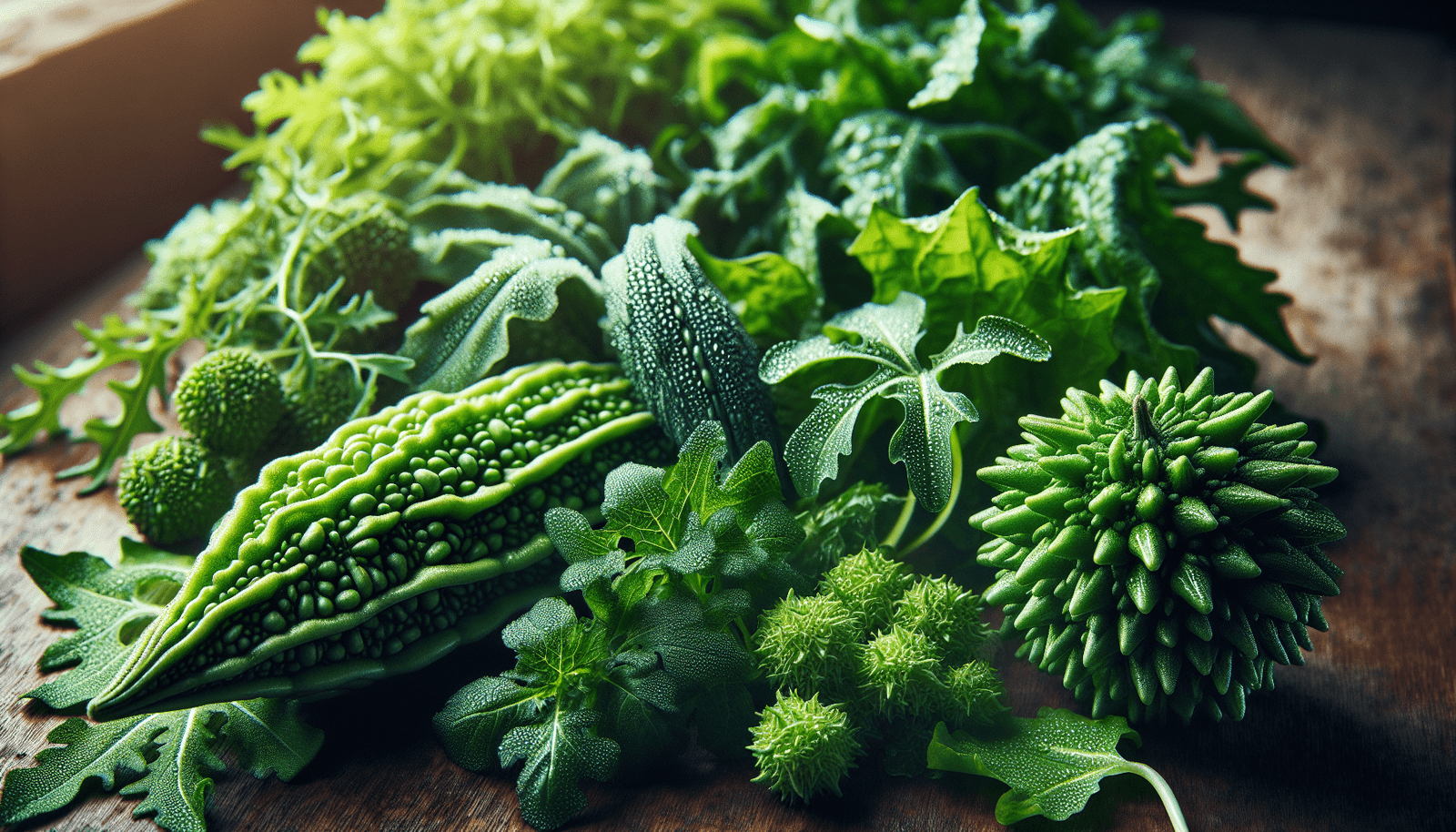Welcome to an insightful article on how bitter herbs can benefit your digestive system. The natural bitterness in herbs such as dandelion, gentian, and burdock root triggers the production of gastric juices and enzymes, aiding in the breakdown of food and absorption of nutrients. By including these herbs in your diet, you can improve your digestion and overall gut health. Let’s delve into the fascinating world of bitter herbs and their digestive benefits. How do bitter herbs promote digestion?
Have you ever wondered how adding a touch of bitterness to your meals can actually be beneficial for your digestive system? Bitter herbs have been used for centuries in various traditional medicine practices to help improve digestion and overall health. In this article, we will explore the ways in which bitter herbs promote digestion and how you can incorporate them into your diet for optimal wellness.
The Science Behind Bitterness
Let’s start by understanding what exactly makes bitter herbs taste, well, bitter. The bitterness in these herbs comes from compounds known as alkaloids, which are naturally-occurring chemical compounds found in plants. When you consume something bitter, it stimulates your taste buds and sends signals to your brain to kickstart the digestive process.
Your Taste Buds at Work
Believe it or not, your taste buds play a crucial role in the digestion process. When you taste something bitter, it triggers the release of saliva, gastric juices, and bile, all of which are essential for breaking down food and absorbing nutrients. So, the next time you cringe at the bitterness of a herb, remember that it’s actually doing your body good!
Stimulating Digestive Enzymes
One of the key ways in which bitter herbs promote digestion is by stimulating the production of digestive enzymes. These enzymes are responsible for breaking down food into smaller molecules that can be easily absorbed by the body.
Bitter Herbs and Enzyme Production
Bitter herbs contain compounds that activate bitter receptors in the mouth and digestive tract, signaling the body to produce more digestive enzymes. This increase in enzyme production helps improve the efficiency of digestion and nutrient absorption.
Popular Bitter Herbs
Some popular bitter herbs known for their ability to stimulate digestive enzymes include dandelion, gentian, and milk thistle. These herbs can be consumed on their own or incorporated into teas, tinctures, or meals to reap their digestive benefits.

This image is property of pixabay.com.
Supporting Liver Function
Another way in which bitter herbs promote digestion is by supporting liver function. The liver plays a crucial role in digestion by producing bile, a substance that helps emulsify fats and aid in their digestion.
Bitter Herbs and Bile Production
Consuming bitter herbs helps stimulate the production of bile by the liver, which in turn improves the digestion and absorption of fats. This is especially beneficial for individuals who struggle with sluggish digestion or fat malabsorption.
Liver-Friendly Herbs
Herbs such as chicory, burdock root, and artichoke are known for their liver-supporting properties. Including these herbs in your diet can help keep your liver healthy and functioning optimally, leading to improved digestion.
Balancing Gut Flora
Maintaining a healthy balance of gut flora is essential for proper digestion and overall health. Bitter herbs can help support the growth of beneficial bacteria in the gut, leading to improved digestion and nutrient absorption.
Prebiotic Properties
Many bitter herbs contain prebiotic fibers, which serve as food for the good bacteria in your gut. By promoting the growth of these beneficial bacteria, bitter herbs help maintain a healthy gut flora and support optimal digestion.
Gut-Friendly Herbs
Herbs like dandelion root, burdock root, and yellow dock are known for their prebiotic properties. Including these herbs in your diet can help nourish your gut flora and promote optimal digestion.

This image is property of pixabay.com.
Reducing Bloating and Gas
If you frequently experience bloating, gas, or indigestion after meals, adding bitter herbs to your diet may help alleviate these symptoms. Bitter herbs can help improve digestion by stimulating the release of digestive juices and enzymes, preventing the buildup of gas and bloating.
Anti-Gas Properties
Certain bitter herbs have carminative properties, meaning they help reduce gas and bloating in the digestive system. These herbs can soothe an upset stomach and promote overall digestive comfort.
Bitter Herbs for Gas Relief
Herbs such as fennel, ginger, and peppermint are known for their gas-relieving properties. Consuming them as teas or incorporating them into meals can help prevent bloating and gas after eating.
Enhancing Nutrient Absorption
Proper digestion is essential for absorbing the nutrients from your food and using them to support various bodily functions. Bitter herbs can help enhance nutrient absorption by improving digestion and optimizing the absorption of vitamins and minerals.
Absorption of Essential Nutrients
By promoting the production of digestive enzymes and bile, bitter herbs help break down food more efficiently, allowing for better absorption of essential nutrients. This ensures that your body receives the vitamins and minerals it needs to function properly.
Bitter Herbs for Nutrient Absorption
Herbs like gentian, wormwood, and goldenseal are popular choices for enhancing nutrient absorption. Including these herbs in your meals or as supplements can help you get the most out of the foods you eat.

This image is property of pixabay.com.
Improving Appetite and Digestion
If you struggle with poor appetite or indigestion, incorporating bitter herbs into your diet can help stimulate your digestive system and promote a healthy appetite. Bitter herbs can kickstart the digestive process, leading to improved digestion and overall wellness.
Appetite-Stimulating Properties
Bitter herbs have been used for centuries to stimulate appetite and improve digestion. By activating the taste buds and increasing enzyme production, these herbs can help enhance your appetite and encourage better digestion.
Bitter Herbs for Appetite
Herbs like gentian, dandelion, and centaury are known for their appetite-stimulating properties. Consuming them before meals or as herbal bitters can help boost your appetite and improve digestion.
Conclusion
In conclusion, bitter herbs can promote digestion in various ways, from stimulating the production of digestive enzymes to supporting liver function and balancing gut flora. By incorporating bitter herbs into your diet, you can improve digestion, enhance nutrient absorption, and support overall gastrointestinal health. So, the next time you come across something bitter, remember that it may just be what your digestive system needs to thrive.


